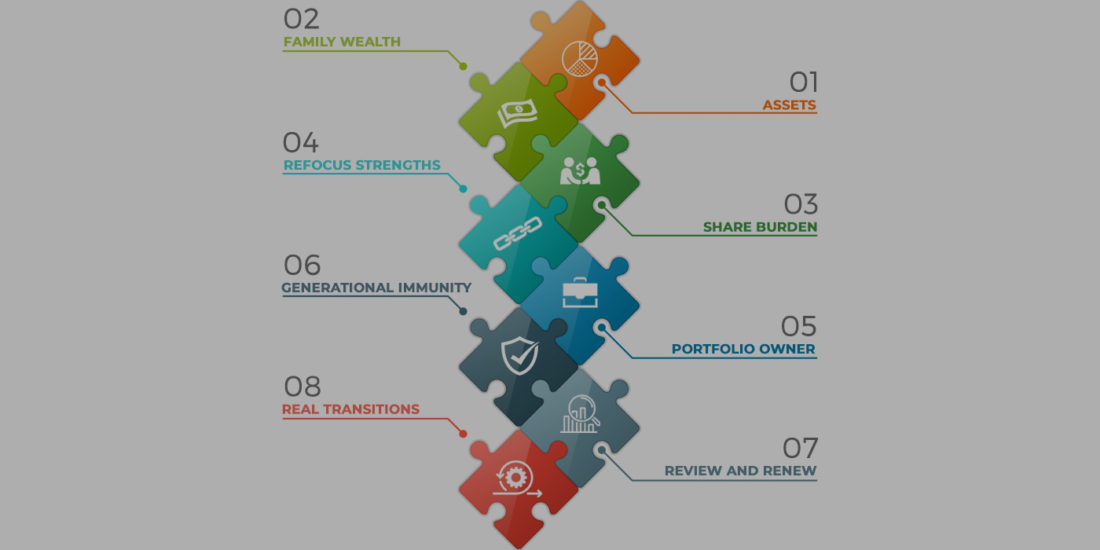
Cross-cultural
Articles exploring the cross-cultural dynamics of family companies from the perspectives of practitioners around the world.
From Only Child to Steward: Building Resilient Families in China
In this week’s FFI Practitioner, FFI Asian Circle Virtual Study Group member Nelson Lam addresses the challenges that can emerge in family enterprises when the successor is the family’s only child, as is the case for those born in China during the country’s one-child policy.
Embedded Family Offices in Asia: Why They Happen and Should They Be Avoided
In this week’s FFI Practitioner, FFI Asian Circle Virtual Study Group members Laurent Roux and Kimberly Go discuss embedded family offices—what they are, how they became prevalent among Asian enterprise families, and their risks.
Sun Tzu’s The Art of War: Two Teachings for Family Advisory
Thank you to FFI Asian Circle Virtual Study Group members Joanna Sun, ACFBA/ACFWA, and Kimberly Go, CFBA/CFWA, for their article that outlines principles from The Art of War, a classic text of military strategy from Chinese philosopher Sun Tzu, and applies them to family advisory practice.
Arcs of Transformation in a Family Enterprise: Balancing Structure and Culture
Thank you to FFI Asian Circle Virtual Study Group member Christian Stewart, FFI Fellow, and co-author Matthew Flynn, ACFBA/ACFWA, for their article that explores how advisors can balance their work with family enterprises to address both the governance structures and the family culture.
Family Enterprise Consulting in Saudi Arabia: An Interview with Basma Al Zamil and Bob Kohli
FFI Practitioner is pleased to feature Basma Al Zamil and Bob Kohli for a podcast conversation about family enterprises and family enterprise consulting in Saudi Arabia.
Family Office Governance: An Asian Business Family Perspective
Thank you to FFI Asian Circle Virtual Study Group member Andre Loh for this article exploring the nuances of family office governance within the Asian context, offering insights into a model that contextualizes corporate governance principles while aligning with the unique dynamics of Asian business families.
Ghosts and Possession in the Family System
Thanks to the FFI Asian Circle Virtual Study Group member and FFI Fellow Kazuyoshi Takei and co-authors Yukio Fujimi and Chikako Kishihara for this week’s edition.
Chief Emotional Officers in Asia’s Collectivist Cultures
Thanks to the FFI Asian Circle Virtual Study Group members, Linda Salim and Kimberly Go for this week’s edition that examines the important role of the Chief Emotional Officer (CEO) in Asian family enterprises.
Challenges of the Sandwich Generation in Leading a Family Enterprise
Thanks to the FFI Asian Circle Virtual Study Group and Yirhan Sim for this week’s edition that features a family enterprise case that demonstrates the challenges experienced by the “sandwich generation” through the transition to lead a family enterprise.
Three Kingdoms: Three Succession Results from Chinese-Indonesian Family Businesses
Thanks to the FFI Asian Circle Virtual Study Group and Linda Salim for this week’s edition featuring mini-cases on succession planning in three Chinese-Indonesian family enterprises with lessons for advisors around the world.
Wealthy Women as an Accelerator for Sustainability Impact
This week, we are pleased to share a summary of a recent survey of wealthy Nordic women aimed at gaining a better understanding of what drives their investing decisions.
The Tao of Conflict Resolution in Family Businesses
Thanks to this week’s contributors and members of the FFI Asian Circle Virtual Study Group, Yukio Fujimi, Chikako Kishihara, and Kazuyoshi Takei, for their article that provides an overview of the Taoist approach to family therapy.
Advising Business Families in Asia: Starting the conversation on generational transition with the Six Buckets Exercise
This week, we are pleased to feature an article by 2020 FFI Fellow Thomas Ang with a suggested approach for advisors to begin discussing wealth transition with their family enterprise clients.
Disruption-in-Disruptions: Eight actions advisors should bring to their client families
During times of disruption, how can family enterprise advisors help their clients navigate unchartered waters to survive turbulence and prepare for an unpredictable future?
Mid-Autumn Festival: Lessons for family businesses
We hope you’ve been enjoying the month-long FFI Practitioner series dedicated to the theme of “Reflections,” which concludes this week with a piece by Paul Chung and Chin Chin Koh. In this article, the contributors reflect on the ancient Chinese Mid-Autumn Festival and explore its parallels to family enterprise.
Decision-Making Processes in Family Businesses in Latin America
The decision-making process within a family business can be one of the most complex issues confronting consultants when working with a client. This week, we’re fortunate to share an article from Luis Medina, where he examines these complex processes within the context of Latin American family businesses.
Rising Female Power in Asian Business Families: Evolving advising practices?
Female entrepreneurship and leadership is gaining momentum in Asia. Asian female entrepreneurs create more and more wealth.
Evolution of Family Business Advisors in India
In India, family businesses range from small mom-and-pop stores to large conglomerates with equally varied business interests.
The Evolving Perception of Family Businesses in the Middle East and North Africa (MENA)
There will be few today who would not agree that family businesses are of chief importance in shaping the future of the MENA. This was not always the case, and only a decade ago perceptions were quite different.
Myths & Realities in the Arab World
The Arab world is a complex region. It is geographically, culturally, historically diverse, yet, from the outside, it is often perceived as a homogeneous region and stereotypes are applied across the board.




















